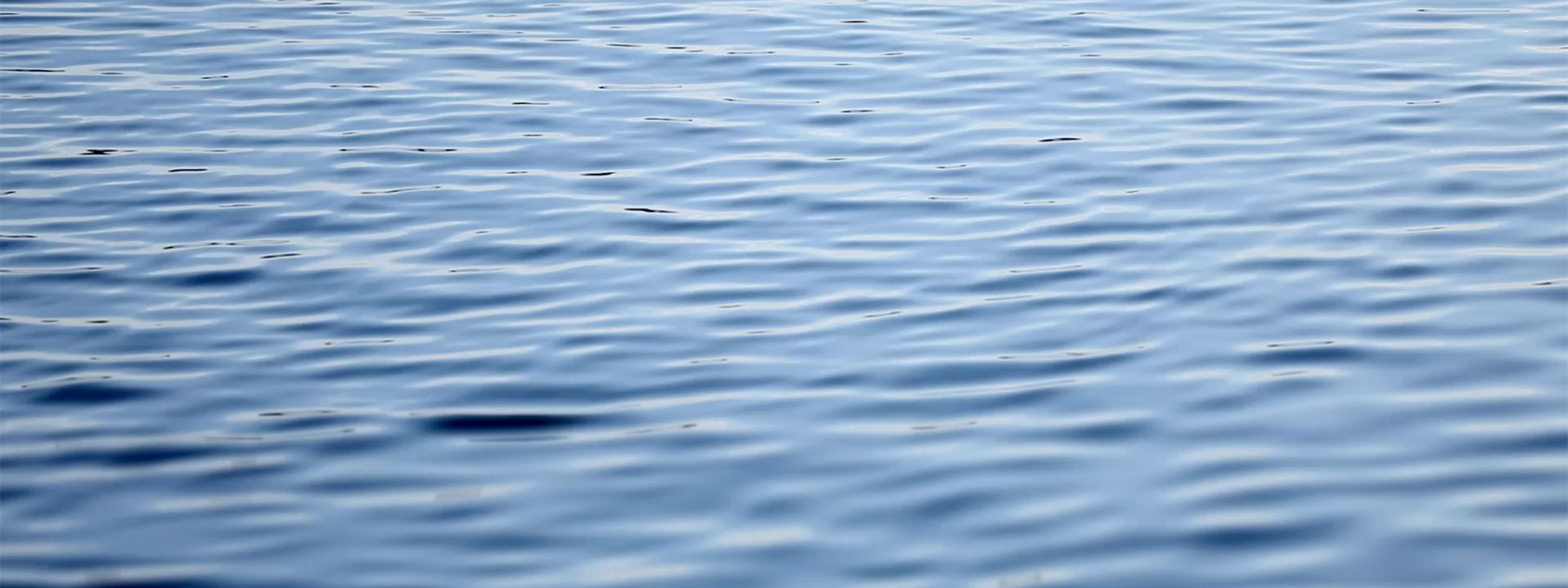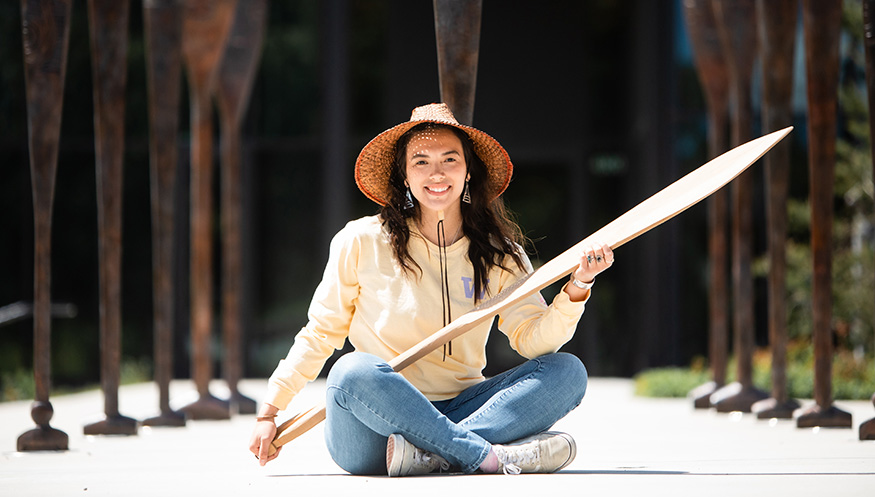
As a high school senior, Stephanie Masterman had no immediate plans to go to college. Then the Muckleshoot Tribe awarded her one of its Higher Education Scholarships, which support Native American students pursuing public higher education opportunities in Washington state.
“When I got that scholarship, I figured I had to do something with the money, so I registered for Green River Community College,” says Masterman. “If I didn’t get that scholarship, I don’t know that I would’ve gone right to college.”
That was the first step in a long journey that eventually led Masterman (BA, American Indian Studies; Arctic Studies minor, 2022) to the University of Washington.
Drawn to Languages — and a Major
Before coming to the UW, Masterman attended three community colleges, fitting in a course or two each quarter while holding down multiple jobs to support herself. After Green River College, she transferred to Highline College. Eager to learn Tlingit — the language of her people — she then enrolled in online courses for Tlingit through the University of Alaska Southeast.
I went to college because I want to be able to show up for my community. Now I have the skills and ability to be versatile, to take on a leadership role.
When Masterman finally transferred to the UW, she tackled another language: Southern Lushootseed, the language of the Puget Sound’s Coast Salish tribes. “My people are from the north, so like many others, I’m a settler here,” she says of the Puget Sound region. “I felt an obligation to learn the language of this territory. And I really fell in love with the Lushootseed language.”
The UW’s Lushootseed courses, offered by the Department of American Indian Studies (AIS), led Masterman to major in AIS. But there was a time when she wasn’t sure AIS was the right choice. “When I got to the UW, I remember thinking, ‘I’m Native. Maybe AIS will just teach me things I already know. Maybe I should try something else.’”
A deep dive into Indigenous climate policy during her junior year helped change her mind. “I realized that climate science and climate policy involve so many things — education, culture, language, history, and community engagement,” says Masterman. “It’s all part of it. And that made me realize that American Indian Studies was definitely the right place for me.”
Diving into Climate Science
At first, studying climate science was out of Masterman’s comfort zone. She had been intimidated by science classes in high school. But she couldn’t resist courses on Indigenous perspectives on climate change, offered by AIS and Arctic Studies. Those courses led her to School of Marine and Environmental Affairs (SMEA) courses and an independent study project with P. Joshua Griffin, assistant professor of SMEA and AIS. The project, Polar Science at a Human Scale — a capstone supported by EarthLab and the UW's Center for American Indian and Indigenous Studies (CAIIS) — focuses on co-producing knowledge and supporting Search and Rescue capacity building in Kivalina, Alaska, as the community adapts to the rapid impacts of climate change.
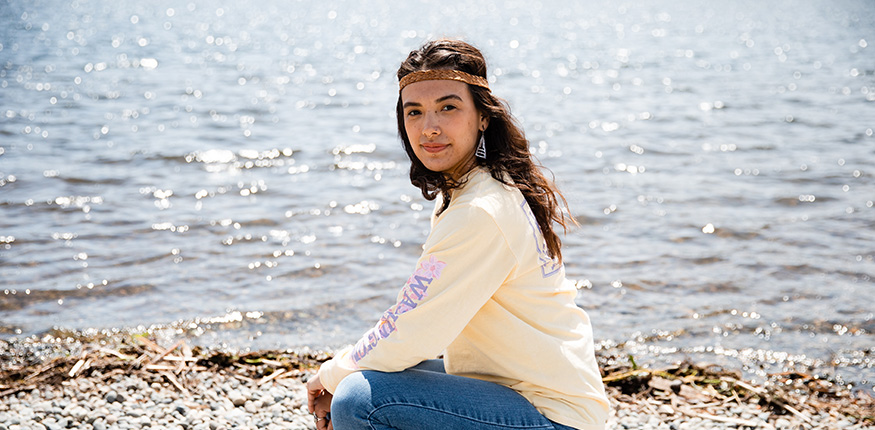
Masterman also pursued research an Ocean Nexus Indigenous Ocean Ecologies Fellow. The program, a collaboration between the Ocean Nexus Center and CAIIS — with support from a Mellon Foundation-funded Native Knowledge@UW grant — provides opportunities for students to design their own research project and meet with community leaders in Indigenous ocean science and governance. For her project, Masterman focused on an issue of great concern to the Tlingit community in Alaska: protecting the tribe’s subsistence rights and access to the sac roe herring fishery.
“Alaska Natives have been challenging the State of Alaska to do a better job with fish and game management since statehood in 1959,” says Masterman. “It’s not just about the resources; it’s about making sure we have a healthy ecosystem.”
To better understand the southeast Alaska herring fishery issue, Masterman took fisheries management courses in SMEA. She also built relationships with leaders in Alaska’s Tlingit community and attended online Alaska Board of Fisheries meetings, contributing her own testimony. She has since been elected as a delegate for the Washington chapter of her tribal government, the Central Council of Tlingit and Haida Indian Tribes of Alaska.
No one is more surprised by this turn of events than Masterman.
“I didn’t think I was ready to be a delegate, but an elder told me it was time, so I had to listen,” she laughs. “They knew it before I did.”
Celebrating Community
Another way Masterman has connected with her community is through Indigenous Research Family, a program of the UW’s Burke Museum. Participants have the opportunity to handle and research cultural artifacts in the Burke’s collection that represent their heritage. During summer 2021 she also met regularly with Burke curator Sven Haakanson, professor of anthropology, who taught her traditional paddle carving using tools purchased with CAIIS' Native Knowledge@UW grant.
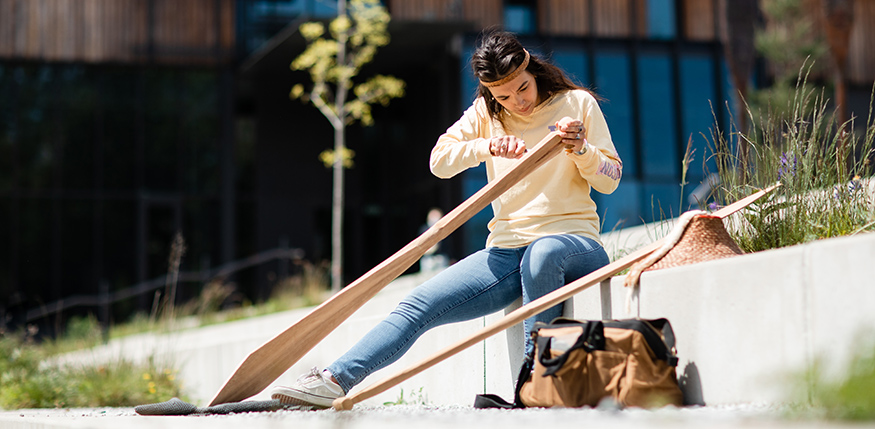
“Sven taught me how to make a Tlingit paddle and then he helped me carve 17 small paddles and a bunch of even smaller ones that I turned into gifts,” Masterman says, explaining that the gifts were for her community’s first potlatch to be held virtually, in 2020. Masterman shipped some of the gifts to Alaska and delivered others by car to potlatch participants in the Puget Sound area.
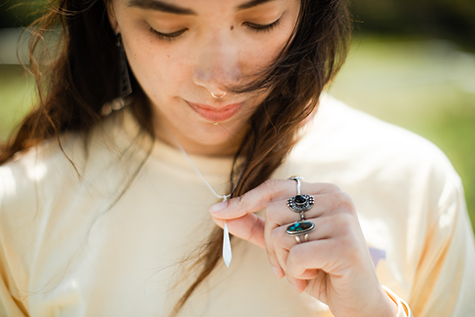
It’s a wonder that Masterman found the time for that project. While carrying a full course load, she also worked up to 35 hours a week at Eighth Generation, a native-owned company with a flagship store in Seattle’s Pike Place Market. Since joining the company seven years ago, Masterman has been promoted several times, and in 2020 was chosen for a Native American 40 Under 40 award from the National Center for American Indian Enterprise Development. Masterman is now Eighth Generation’s retail and special projects manager.
“Sometimes when you’re made to feel invisible in the world, it’s hard to believe that you have what it takes and that you are smart enough and good enough,” she says. “That’s what it feels like when the world makes Native people feel invisible. But working at this company has shown me that all of that is wrong, because of what we’ve been able to do. It’s kept me strong and focused.”
Masterman has continued with Eighth Generation since graduating, and also serves as a delegate in her tribal council. With all that she’s learned at the UW, she’s eager to contribute even more to her community.
“I went to college because I want to be able to show up for my community,” she says. “Now I have the skills and ability to be versatile, to take on a leadership role. So that’s what I’m doing. And I’m just getting started."
More Stories

What Students Really Think about AI
Arts & Sciences weigh in on their own use of AI and what they see as the benefits and drawbacks of AI use in undergraduate education more broadly.

AI in the Classroom? For Faculty, It's Complicated
Three College of Arts & Sciences professors discuss the impact of AI on their teaching and on student learning. The consensus? It’s complicated.

Bringing Music to Life Through Audio Engineering
UW School of Music alum Andrea Roberts, an audio engineer, has worked with recording artists in a wide range of genres — including Beyoncé.
